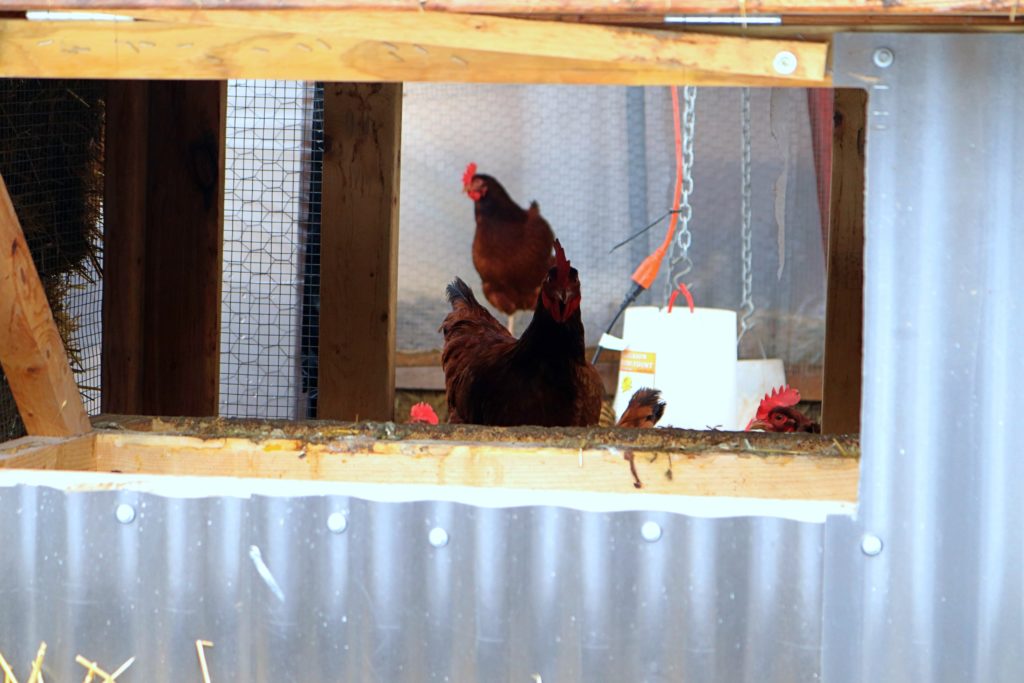How do chickens survive Chiberia?

One question we get asked all the time: How do you keep your chickens warm through those rough Chicago winters?!
In truth, this is actually asking the wrong question. It’s not really the cold that really concerns us in winter. The chickens are okay in the cold, but “there’s nothing madder than a wet hen.” We design our coop with the intention of keeping the chickens dry.
We try to design all our farming operations to be as passive as possible (translation: minimizing work while maximizing production), and our chicken system is no different! Through clever design, we allow the dry winter air to pass through the coop, without letting any direct wind carrying precipitation to enter the coop. Good ventilation is important, because if the humidity does not escape, it will begin to condense on every part of the coop, including the chickens! This is when you get sick, or worse, dead chickens. When the temperatures drop in the coop and moisture is inside, the condensation can freeze on the chickens combs and feet, and it is such a shock to their immune system that often they do not recover.
Even the most well designed passive system needs a backup option for the most extreme of events. Fortunately, we have not had too many extremely cold days this year, but some of you will remember the days of January 2019, where temperatures got down to -50F with windchill. We had 12 chickens at the time, and we didn’t lose a single one! We had a close eye on the weather, and during the most extreme cold, we ran a propane heater on its lowest setting for 24 hrs. Combined with the passive heating systems, it was a balmy 20 degrees in the coop, while the temp and windchill outside was a piercing -50F!
The success of many passive design systems is dependent on a variety of small elements working together to uphold the entire system, and good ventilation is just one piece of the puzzle for us.
If you like learning about this sort of thing, make sure you subscribe to our Instagram! Stay tuned, there is plenty more where this came from on the way!